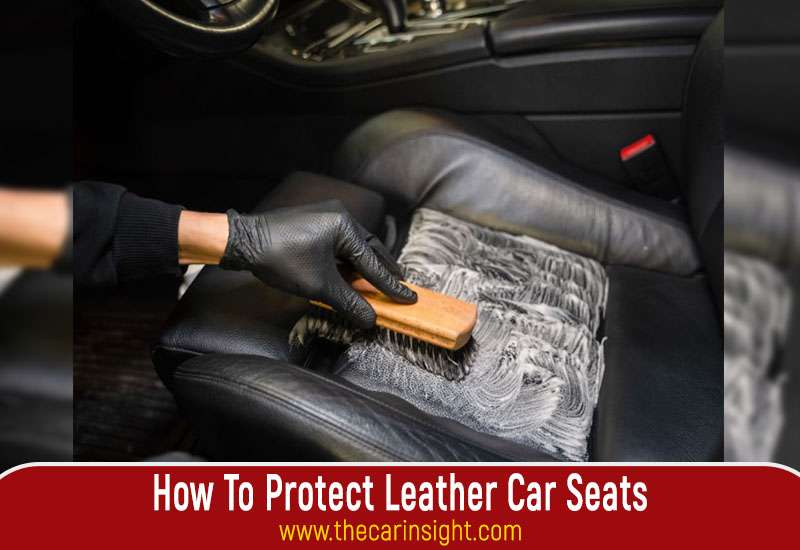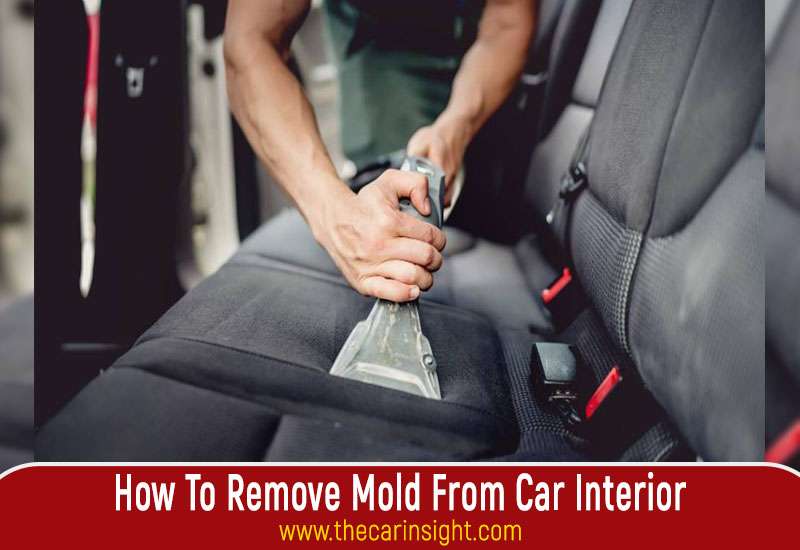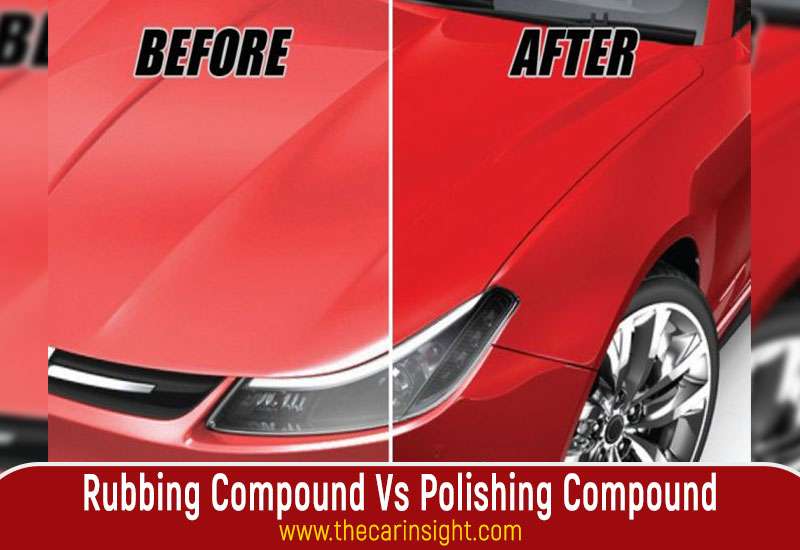How To Prevent Your Car From Rusting: To prevent your car from rusting, regularly wash and wax your car’s exterior, paying attention to the undercarriage and wheel wells. Rust can be a common problem for many car owners, leading to costly repairs and a decrease in the vehicle’s value.
To prevent your car from rusting, there are a few steps you can take. First, it’s important to regularly wash your car, especially during the winter months or in areas where road salt is used. This will remove any dirt, salt, or other contaminants that can cause rust.
Additionally, applying a layer of wax can provide a protective barrier for your car’s paint, keeping rust at bay. Don’t forget to pay special attention to the undercarriage and wheel wells, as these areas are more susceptible to rust due to their exposure to moisture and debris. By following these preventive measures, you can keep your car looking great and rust-free.
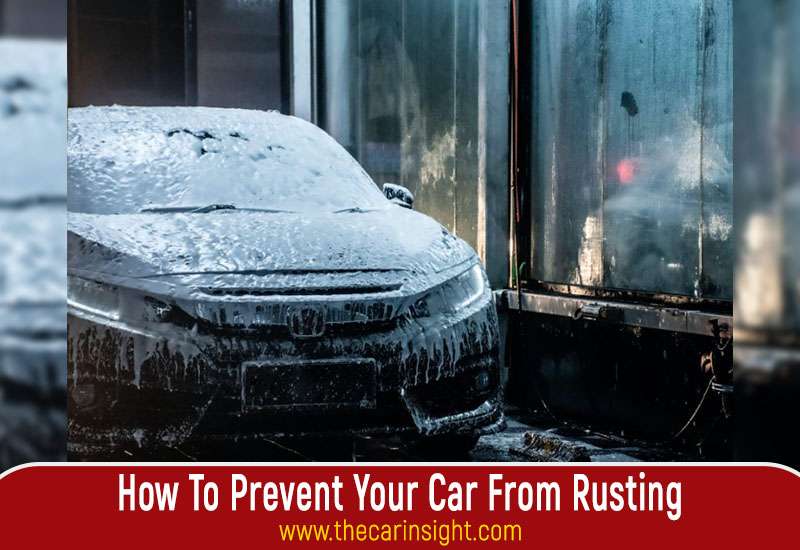
Understanding Rust Formation
Prevent rust formation on your car with these effective tips to keep your vehicle looking as good as new. Learn how to protect your car from rust and ensure its longevity.
Understanding Rust Formation Rust is the bane of many car owners’ existence. It’s unsightly, damages the structural integrity of your vehicle, and can significantly impact its resale value. However, with a solid understanding of rust formation, you can take proactive steps to prevent it from wreaking havoc on your beloved automobile. What Causes Rust? Rust, scientifically referred to as iron oxide, is formed when iron, water, and oxygen interact.
When these elements combine, a chemical reaction occurs, leading to the formation of rust. This process is accelerated by exposure to salt, moisture, and various environmental pollutants. In the context of your car, road salt, rain, and humidity are common culprits. Effects of Rust on Cars The effects of rust on cars are not merely cosmetic. Rust weakens the structural integrity of your vehicle, compromising its safety and durability.
Additionally, rust can adversely impact crucial components such as the exhaust system, brake lines, and fuel tank, leading to potential safety hazards and expensive repairs. In summary, the formation of rust on your car is a direct result of the interaction between iron, water, and oxygen. The presence of environmental factors such as road salt and moisture accelerates this process. It’s important to recognize the detrimental effects of rust on cars, which extend beyond aesthetic concerns and can compromise the overall safety and functionality of your vehicle.
Regular Cleaning And Washing
Prevent rust by regularly cleaning and washing your car. Remove dirt and debris from all surfaces, paying special attention to the undercarriage and wheel wells. This maintenance routine will help to preserve the integrity of the vehicle’s metal components and extend its lifespan.
Regular cleaning and washing are essential for preventing your car from rusting. Keeping your car clean not only enhances its appearance but also protects it from corrosive agents such as salt, dirt, and grime. In this section, we will discuss the importance of regular cleaning and proper car washing techniques to help you maintain the longevity of your vehicle.
Importance Of Regular Cleaning
Regular cleaning plays a crucial role in preventing rust formation on your car’s exterior. When dirt and grime accumulate on the surface, they trap moisture, creating a perfect breeding ground for rust. By cleaning your car regularly, you can remove these contaminants and effectively prevent rust from taking hold. Proper car washing techniques are vital in maintaining the condition of your vehicle. Here are a few techniques you should follow for effective car washing:
Proper Car Washing Techniques
- Choose the right cleaning products: Opt for a pH-neutral car wash soap to protect your car’s paintwork. Harsh detergents can strip away the protective wax, leaving the surface vulnerable to rust.
- Use separate cleaning tools: Keep separate buckets and cleaning tools for different parts of the car to avoid cross-contamination. This prevents abrasive particles from scratching the paintwork.
- Start with pre-rinse: Before applying any soap, rinse your car thoroughly to remove loose debris and dirt. This step helps minimize the chances of scratching the surface during cleaning.
- Wash from top to bottom: Begin washing from the roof and gradually work your way down to the lower areas. This ensures that any dirt or grime from the upper sections does not flow down and stick to the already cleaned areas.
- Use a microfiber cloth or sponge: Avoid using abrasive materials like rough sponges or towels that can create fine scratches on the paintwork. Microfiber cloths are gentle on the surface and help in achieving a streak-free shine.
- Rinse thoroughly: After washing, make sure to rinse your car thoroughly to remove all traces of soap. Residual soap can attract dirt and cause stains or streaks.
- Dry your car properly: Use a clean microfiber cloth or a chamois to dry your car completely. This prevents water spots and any remaining moisture that can contribute to rust formation.
By following these proper car washing techniques and maintaining a regular cleaning schedule, you can protect your car from rusting and ensure its longevity. Remember, prevention is always better than cure when it comes to rust, and a clean car is a happy, rust-free car.
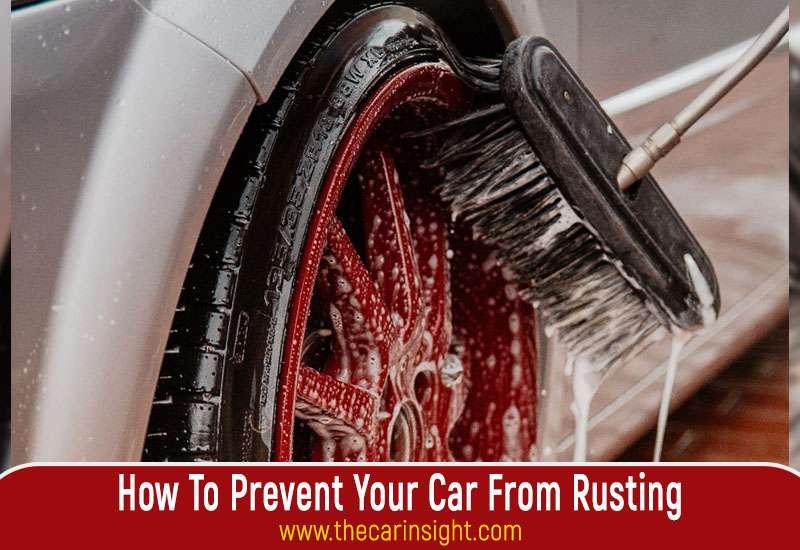
Protective Coatings And Sealants
Your car’s paint job acts as a shield against rust, but over time, it can wear and expose the metal beneath. Protective coatings and sealants play a crucial role in preventing rust and preserving your vehicle’s appearance and longevity.
Types Of Protective Coatings
- Wax: Creates a hydrophobic barrier to repel water and contaminants.
- Ceramic Coating: Provides long-lasting protection and enhances shine.
- Undercoating: Shields vulnerable areas from road debris and moisture.
Application Of Sealants
- Clean Surface: Thoroughly wash and dry the car to ensure proper adhesion.
- Apply Evenly: Use a microfiber applicator to apply the sealant in a uniform layer.
- Buff Off: After allowing the sealant to cure, buff it off for a smooth finish.
Rust-resistant Paints And Primers
Protecting your car from rust is essential for its longevity. Using rust-resistant paints and primers is a crucial step in preventing corrosion.
Choosing The Right Paints
Opt for high-quality rust-resistant paints specially formulated for automotive applications.
Primer Application Process
Properly prepare the surface before applying primer. Use a rust-inhibiting primer to create a strong base for the paint.
Addressing Scratches And Chips
Addressing Scratches and Chips is crucial to prevent further rusting on your car’s body.
Repairing Surface Imperfections
Surface imperfections on your car can lead to rust formation.
Use fine grit sandpaper to smooth out scratches and chips
Clean the affected area to remove any debris or dirt
Best Practices For Touch-up Paint
Touch-up paint can help prevent rust by sealing exposed metal surfaces.
Select a paint color that matches your car’s existing color.
Apply thin layers of touch-up paint and allow each layer to dry completely before adding another.
Undercoating And Rustproofing
Undercoating and rustproofing are essential steps in preventing your car from rusting. These measures provide a protective layer that shields your vehicle’s undercarriage against moisture, debris, and corrosive substances. By adopting these preventive measures, you can extend the lifespan of your car and maintain its aesthetic appeal. In this section, we will explore the benefits of undercoating and effective rustproofing methods.
The Benefits Of Undercoating
Undercoating offers numerous advantages that help protect your car from rust formation. Let’s take a look at some key benefits:
- Corrosion prevention: Undercoating creates a barrier that guards your car’s vulnerable undercarriage against rust-causing elements.
- Moisture resistance: Undercoating acts as a waterproof sealant, preventing moisture buildup that leads to rusting.
- Noise reduction: Undercoating effectively dampens road noise, providing a quieter and more comfortable driving experience.
- Heat insulation: Undercoating helps regulate temperature by minimizing heat transfer, enhancing the overall efficiency of your car’s heating and cooling systems.
- Protection from debris: Undercoating shields your car’s undercarriage from stone chips, dirt, salt, and other abrasive particles that can cause damage.
- Increased resale value: Regular undercoating maintenance preserves your car’s condition, making it more appealing to potential buyers and increasing its resale value.
Effective Rustproofing Methods
To effectively rustproof your car and prevent corrosion, consider the following techniques:
- Electrochemical Rustproofing: This method involves using electronic inhibitors that prevent rust formation by interrupting the electrochemical process. It is highly effective and long-lasting.
- Oil Spray Rustproofing: Oil-based rustproofing involves applying a thin layer of oil to protect your vehicle’s undercarriage. This method is particularly useful in areas with frequent exposure to moisture and salt.
- Rubberized Undercoating: Rubberized undercoating forms a durable, flexible layer that shields against moisture, debris, and corrosion. It offers excellent protection for your car’s undercarriage.
- Wax or Petroleum-Based Rustproofing: Wax or petroleum-based rustproofing products create a protective coating that inhibits rust formation. These products are easy to apply and provide long-lasting protection.
- Paint Protection Film: Applying a transparent paint protection film to vulnerable areas of your car’s undercarriage offers an effective barrier against moisture and debris, preventing rust from developing.
By combining undercoating with an effective rustproofing method, you can significantly reduce the risk of rust formation and maintain the longevity of your car. Regular maintenance and inspections are vital to ensure continuous protection against rust and corrosion.
Monitoring Rust-prone Areas
When it comes to ensuring the longevity of your car, monitoring rust-prone areas is crucial. Rust can slowly eat away at your vehicle, causing significant damage and reducing its lifespan. By being proactive and regularly inspecting your car for signs of rust, you can effectively prevent it from worsening and safeguard your investment. Let’s explore how you can effectively monitor rust-prone areas to keep your car in top condition for years to come.
Identifying Common Rust Spots
Diligently identifying the common rust spots on your car is the first step in preventing corrosion. Some of the areas most susceptible to rust include the wheel wells, undercarriage, door sills, and around the headlights and taillights. Pay close attention to these areas as they are often exposed to moisture, dirt, and debris, which can accelerate the rusting process.
Regular Inspection Techniques
Regularly inspecting your car for rust is essential in maintaining its structural integrity. A simple visual examination of the aforementioned rust-prone areas can reveal early signs of corrosion. Additionally, utilizing a flashlight and a small mirror can help you examine hard-to-reach spots underneath the car and within various crevices. Investing in a corrosion inspection tool can provide a more in-depth analysis of the paint and metal condition.
Professional Rust Prevention Services
Protect your vehicle from rust with professional rust prevention services. With expert treatment, your car will stay rust-free, ensuring longevity and preserving its value. Keep your car looking great and running smoothly with the right rust-prevention solutions.
Expert Rust Prevention Options
When it comes to protecting your car from rust, professional rust prevention services provide expert solutions.
Choosing The Right Service Provider
Choosing the right service provider ensures your car receives top-notch rust-prevention treatment.
There are several expert rust prevention options to consider:
- Annual rustproofing maintenance
- Electronic rust protection systems
- Ceramic coating application
When selecting a service provider, consider these factors:
- Experience and expertise in rust prevention
- Use of high-quality rustproofing products
- Positive customer reviews and reputation
Look for a service provider that offers a comprehensive rust prevention package tailored to your vehicle’s needs.
Frequently Asked Questions Of How To Prevent Your Car From Rusting
How Do I Rust Proof My Car?
To rust-proof your car, wash it regularly to remove dirt and salt, apply a rust inhibitor, and keep the underside clean. Wax the car’s exterior and touch up any paint chips. Consider rust-proofing treatments by professionals or using rust-proofing sprays.
Keep an eye on rust-prone areas and address any issues promptly.
How Do You Preserve A Car From Rust?
To preserve a car from rust, regularly wash and wax the vehicle, especially during winter. Apply a rust inhibitor treatment to vulnerable areas, such as the undercarriage. Keep the car in a dry environment and repair any paint chips promptly.
Inspect and maintain the drainage system to prevent water buildup.
Can You Stop A Car Frame From Rusting?
Prevent car frame rust by regularly washing, waxing, and applying a rust inhibitor. Keep the frame clean and dry.
Can You Stop Rust Once It Starts?
Yes, you can stop rust once it starts by using rust converters or treatments that remove rust and prevent its further development.
How Does Rust Develop On Vehicles?
Rust forms when metal is exposed to oxygen and moisture, causing corrosion over time.
What Are Common Causes Of Car Rusting?
Factors like road salt, humidity, and scratches can accelerate rust formation on vehicles.
Why Is Rust Prevention Important For Cars?
Preventing rust not only maintains the car’s appearance but also extends its longevity.
Conclusion
To keep your car rust-free and prolong its lifespan, remember to regularly wash and wax your vehicle. Don’t forget to address any scratches or dings promptly, as they can serve as entry points for rust. Investing in rustproofing treatments and keeping up with routine maintenance tasks such as oil changes and inspections will also go a long way in preventing rust.
By following these simple steps, you can ensure your car stays in top shape and retains its value for years to come.

